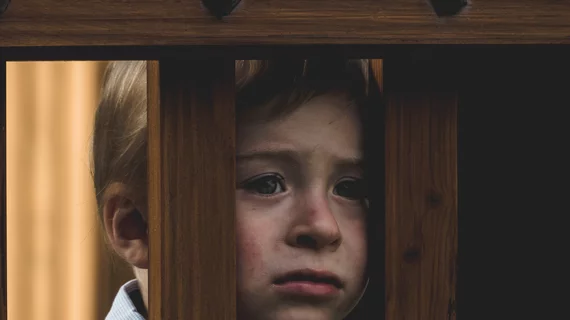‘Radiology failures, misdiagnosed fractures’ blamed in 2 wrongful assumptions of child battery
In the U.K., two instances of evidently inept work by radiologists are inadvertently spotlighting the value of subspecialized image interpretation in socially sensitive patient cases.
Both cases involved babies who were misdiagnosed in 2020 following musculoskeletal X-rays in Wales.
One interpretive error led to the arrest of a parent incorrectly suspected of child abuse.
The other precipitated the needless removal of a baby from his parents and subsequent residence in a foster home for almost a month.
BBC News brings the mishaps to light in two separate stories, the second of which posted this month.
Follow-up Radiology Report: Baby Thomas ‘Absolutely Fine for His Age’
In that case, 6-month-old Baby “Thomas” (not his real name) fell to the floor while having his diaper changed, according to mother’s account via the BBC article.
Concerned the tumble might have related to Thomas’s having been born prematurely, his parents called a National Health Service emergency health line. A nurse recommended taking Thomas to the hospital for evaluation.
At the hospital Thomas was X-rayed, and a radiologist reported “a discrepancy on his left tibia” and “a mark on his seventh left rib.”
This is when police and social workers entered the scene, according to the BBC.
Next came a skeletal survey of 30 X-rays and placement of the baby in a care center, along with conditions the parents had to meet in order to visit.
Mom “Sarah” picks up the story from here.
“In the second set of X-rays, the radiologist … said there was nothing on the rib, it must have been a shadow,” Sarah recalls for the news outlet. “Rib was written off. But they said the leg was the same.”
More from the mom:
“At this point I didn’t realize a normal baby radiologist couldn’t look at baby X-rays. I didn’t realize there was someone more qualified to look at them. So they ended up sending [the X-rays] to a specialist … who was trained at looking at bones of infants.”
This time the radiology report “said there was no abnormality,” Sarah tells the BBC. “It said he was absolutely fine for his age.”
Toward Achieving ‘Meaningful Change in How Imaging Is Managed as Part of Patient Care’
Asking the local health board for comment, BBC News was told such situations are “by nature, emotional and distressing, but the health board is bound by national safeguarding procedures which must be followed to ensure the protection of children and prevention of harm.
“The radiological element is one part of the overall investigation,” the board continued, “and the radiologists do not have any contact with social services and are solely involved with the imaging independently.”
BBC News also learned a Wales ombudsman was not involved in this case but knows of 16 unique complaints regarding radiology services between April 2017 and March 2022.
That was only in Wales. Nationally, BBC News reports, a Parliamentary and NHS ombudsman says it’s looked at 124 cases related to misdiagnosed medical imaging since January 2019.
In fact, a report from the national ombudsman’s office published in 2021
… recommends system-wide improvements for more effective and timely management of X-rays and scans. While some progress has been made, continued buy-in from NHS senior leaders is critical in achieving meaningful change in how imaging is managed as part of patient care.”
The full story is here. The earlier article in the series, “Misdiagnosed fractures saw children put in care,” is here.

